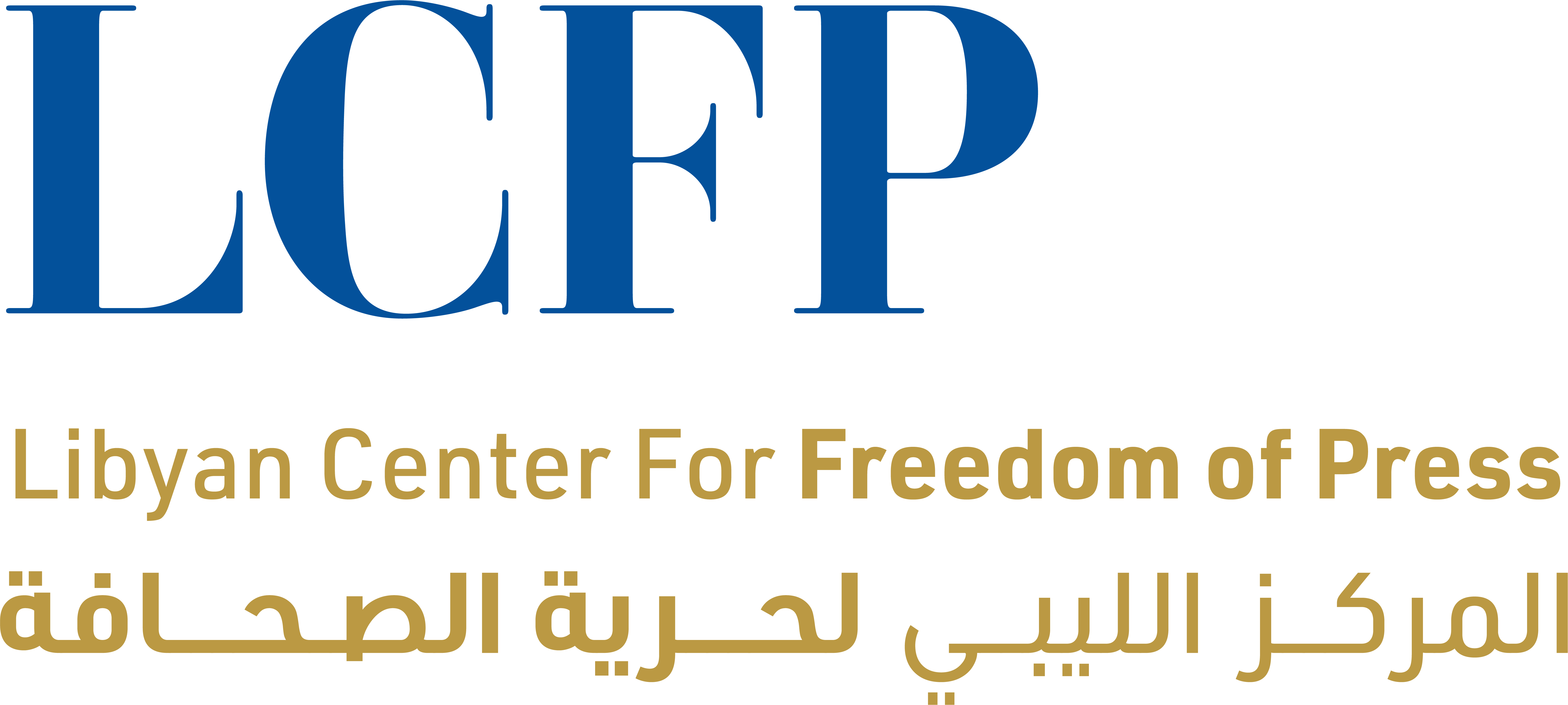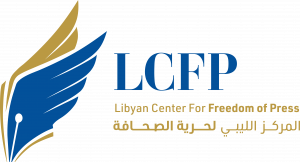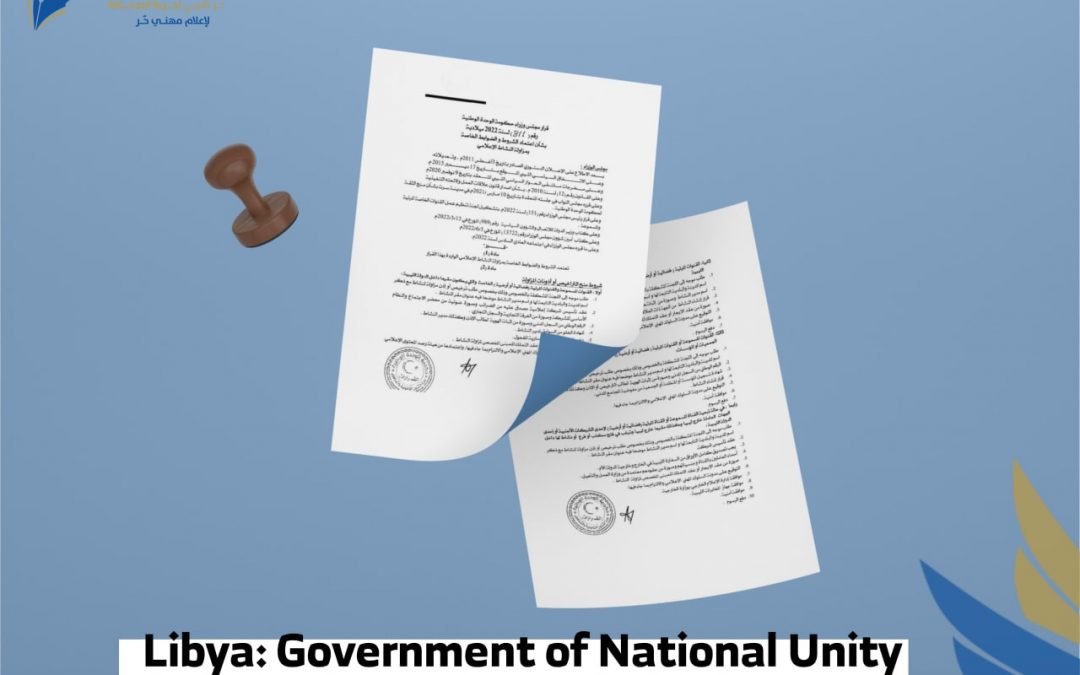
Oct 11, 2022
The undersigned organisations and associations call on the Government of National Unity to repeal its dangerous decision regarding audiovisual media because of the grave risks it poses to the diversity and plurality of the media landscape in Libya, as well as its threat to the integrity of any upcoming electoral process
On 15 September 2022, the Government of National Unity issued Decision n° 811 of 2022 on the conditions and requirements for audiovisual media activities. Decision n° 811 includes irregular stipulations that violate media freedom, such as requiring the approval of the security authorities or the approval of the Libyan intelligence service – and thereby allowing security and military authorities to intervene in the regulation of audiovisual media
The lack of independence of the committee adds to the seriousness of the situation. The Committee for the Regulation of the Work of Private Audiovisual Channels is supervised by the Department of Information and Government Communications at the Cabinet Office, and security agencies have a strong presence within the committee itself: it is headed by a former security officer and several members sit on the committee, including two representatives of the Ministry of Interior and the Libyan intelligence service
The permission to practice is granted by the Committee for the Regulation of the Work of Private Audiovisual Channels, which was established in March 2022 by a government decision, n°151 of 2022. Permission is granted after media outlets meet a set of conditions that determine the legal status of media institutions and outlets that produce audiovisual content, and after they obtain a licence from the Ministry of Interior or the intelligence service or tax administration, and pay the required fees
The government’s decision requires that audiovisual institutions pay high fees ranging from 20,000 to 30,000 dollars for TV channels, and between 7,000 and 10,000 dollars for radio stations. These fees constitute unfair, prohibitive conditions, especially since channels are obliged to pay between 4,000 and 20,000 dollars each year to renew their licence. These conditions threaten the viability of media institutions, which may find themselves unable to continue their activities if they do not meet the approval of the security services or the intelligence service or because of their inability to pay the high amount of fees
The undersigned organisations and associations stress that while it is legitimate to regulate the audiovisual communication sector with the aim of ensuring the plurality and diversity of the media landscape and the transparency of media ownership, it should not end up with the government taking control of the media sector. The upcoming elections in Libya require that media institutions are protected from political tensions and from any threats of closure
The undersigned organisations and associations call on the Government of National Unity to withdraw this dangerous decision and to hold open and transparent consultations with media institutions, civil society organisations and experts to draft a decision that respects media freedom, independence, pluralism and the viability of the media
Here the updated list of signatories:
Signatory organizations
1. ARTICLE 19
2. Aman Organization against discrimination (AAD)
3. Libya Crimes Watch (LCW)
4. Adala for ( AFA)
5. Cairo institute for human rights studies (CIHRS)
6. The Libyan Center for Freedom of Press (LCFP)
7. Belaady Organization for Human Rights
8. Jurists without chains
9. Libyan Legal Aid Organization
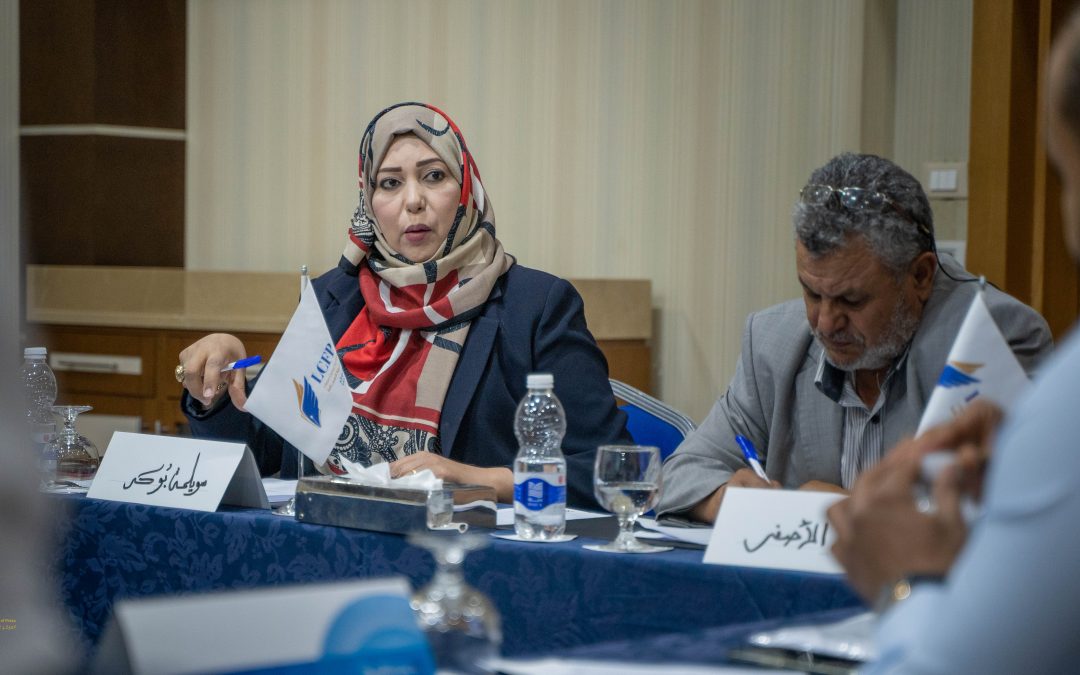
May 26, 2022
Tripoli, May 21
The Libyan Center for Freedom of Press (LCFP) held the regular annual meeting of its General Assembly on Saturday, May 21, 2022, headed by the President of the General Assembly, Ms. Swelma Boker, and the Chairman of the Board of Directors, Dr. Mohamed Al-Asfar. The majority of the Assembly members and the working group were present in the meeting. During this meeting, all projects and activities accomplished in 2021 by LCFP were presented. In addition to the projects that it will work on during 2022-2023. The annual budget and all the expenses incurred by LCFP for the conduct of its business and the success of its projects were also presented. The members of the General Assembly approved the narrative and financial reports for the years 2020 and 2021 with a quorum of half +1.
The annual meeting focused on discussing the state of shortage in funds, the decline in the activities carried out by LCFP since the Covid19 pandemic, and the scarcity of funds from international donors, due to the restrictions imposed by the Civil Society Commission and its “blatant” interference in the work of non-governmental organizations. That happened in the light of the silence of the Presidential Council and the government. LCFP was also faced with a political stalemate and polarization in the country.
During the meeting, Chairman of the Board of Directors Dr. Muhammad Al-Asfar insisted on the necessity to address national government agencies such as executive bodies, public companies and banks to finance media development programs and projects, as stated in the social responsibility clause, and to ensure reliance on national funding, in condition of integrity and independence.
The participants to the meeting recommended to increase the number of participants by setting up a mechanism to attract new members, increasing the funds of major programs, activities, operational expenditures and human resources, and subjecting them to review by an external financial office. They also emphasized the need to expand partnerships at the international level with donor organizations by the means of effective communication.
The meeting concluded with the need to expand the programs and activities of the strategic plan for the years 2022 and 2023, to include media monitoring, verification of allegations, follow-up of the national elections, and the programs to combat impunity and structural and legal reforms of the Libyan media sector.
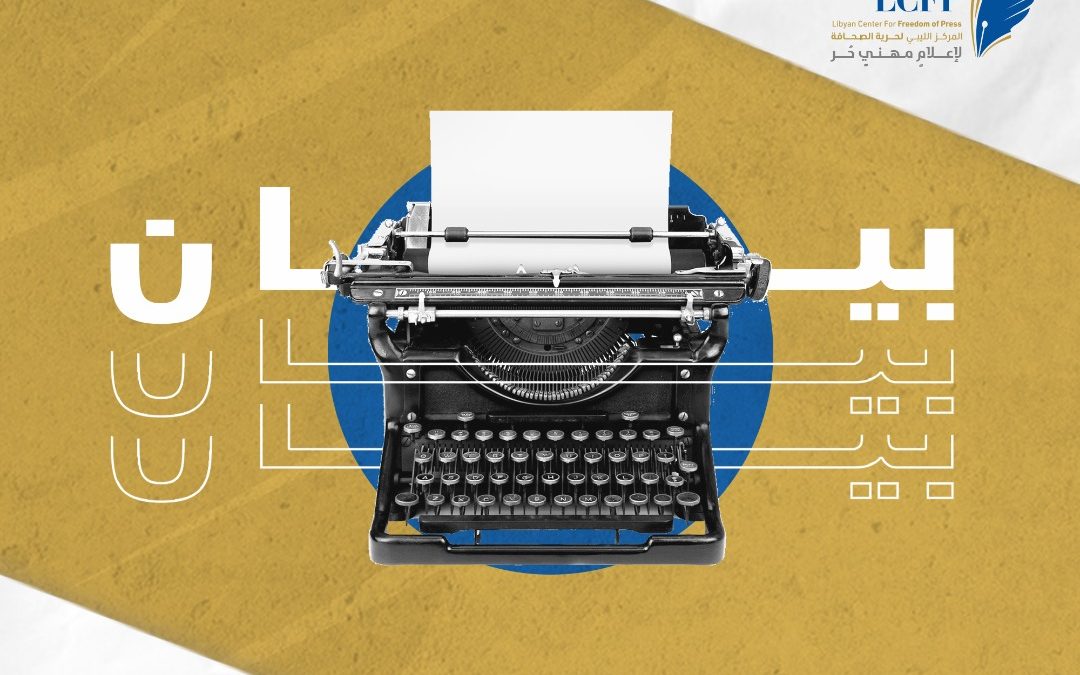
Nov 10, 2021
The undersigned organizations call upon Libyan authorities to rescind the cybercrime law recently adopted by the Libyan House of Representatives. The law would severely restrict freedom of expression, curtail press freedom, and legalize mass surveillance of speech online. Additionally, the law allows for warrantless blocking of websites and content
During the plenary session held on October 26, 2021, the Libyan House of Representatives ratified the Anti-Cybercrime Law. The vote comes at a pivotal moment for Libya with the presidential elections scheduled for December 24, 2021. In order to ensure these elections are free, fair, and transparent, it is imperative to guarantee freedom of opinion and expression as well as freedom of press, both offline and online
The draft bill was quickly passed, only one day after it was added to the parliament’s agenda and without public consultation with Libyan civil society, human rights defenders, or experts. This has prompted the undersigned organizations to examine the version available on social media, which was leaked by Members of Parliament and experts in the digital field
Broad terminology that contravenes international human rights standards
The new Anti-Cybercrime Law stipulates a myriad of overbroad and ambiguous terms that would give the Libyan judicial authorities an extensive discretionary power to restrict online freedom of expression. Article 4 stipulates that the use of the internet and new technologies is considered “legal” provided that “public order and morality” are respected. Hence, any use that violates these ambiguous concepts can be deemed illegal. According to Article 37, “whoever spreads a rumor or publishes information or data that threaten security or public safety in Libya or any other country,” shall be imprisoned for a period of up to fifteen years in addition to a heavy fine of no less than ten thousand Libyan Dinars. We warn against the danger of using this article to target and punish journalists, whistleblowers, human rights defenders, and other internet users. This article can also be used to criminalize the publication and sharing of any content that documents human rights violations, opposes public policies in Libya, or any other information of public interest. Notably, the Libyan authorities and militias have used “violation to public order and morality” as a pretext to target, imprison, torture, and kill journalists and human rights defenders
Furthermore, danger of this repressive legislation lies in Article 35, which provides for the imprisonment of “anyone who is aware of the commission or attempted commission of any of the crimes stipulated in this law” even though it includes phrases having a general and broad meaning
Such broad and ambiguously drafted articles are in violation of international human rights standards and Article 19 of the International Covenant on Civil and Political Rights (ICCPR). As stated by the U.N. Human Rights Committee in their General Comment No. 34, “a norm, to be characterized as a ‘law’, must be formulated with sufficient precision to enable an individual to regulate his or her conduct accordingly.” Any restriction of the right to opinion and expression for reasons related to either respect for the rights of others or their reputations, or to protect national security, public order, public health, or morals must be provided by law and subject to rigorous tests to meet the requirements of necessity and proportionality. This is also consistent with Libya’s national laws. Article 14 of the Libyan Constitutional Declaration of 2011 stipulates that the State shall guarantee freedom of opinion and expression as well as the freedom of press and publication
Measures that threaten the freedom of expression, publication, and press
Articles 13 and 47 of this new legislation, related to “interference and interception” and “unlawful wiretapping” respectively, could justify impeaching journalists for accessing information or communicating with whistleblowers in order to share information of public interest. This is inconsistent with paragraph 2 of Article 19 of ICCPR, which states that “[e]veryone shall have the right to freedom of expression; this right shall include freedom to seek, receive, and impart information and ideas of all kinds, regardless of frontiers, either orally, in writing or in print, in the form of art, or through any other media of his choice.” It also contravenes paragraph 3 of the General Comment No. 34 stipulating that “freedom of expression is a necessary condition for the realization of the principles of transparency and accountability that are, in turn, essential for the promotion and protection of human rights,” as well as paragraph 30 stipulating that “It is not compatible with paragraph 3, for instance, to invoke such laws to suppress or withhold from the public information of legitimate public interest that does not harm national security or to prosecute journalists, researchers, environmental activists, human rights defenders, or others, for having disseminated such information.”
Article 21 of the Anti-Cybercrime Law also criminalizes and punishes with imprisonment for a period of no less than one year any act of “combining or mixing someone’s picture or voice, without their written or online consent, by using the internet or any other digital means with the intent of harming others.” The article does not carve exceptions with regards to public or political figures, and therefore may inadequately restrict freedom of expression in Libya. In this context, it is noteworthy to point out the Human Rights Committee’s affirmation within the General Comment No. 34 stating that “all public figures, including those exercising the highest political authority such as heads of state and government, are legitimately subject to criticism,” and that “the mere fact that forms of expression are considered to be insulting to a public figure is not sufficient to justify the imposition of penalties.”
Permitting mass surveillance and blocking of websites and content
Article 7 of the Anti-Cybercrime Law permits the Libyan authorities to monitor everything published on social media “and any other technical platform,” and to enable the National Information Security and Safety Authority (NISSA), an administrative and technical governmental authority in Libya, to block websites and content without judicial orders if they provoke “racial or regional slurs and extremist religious or denominational ideologies that undermine the security and stability of the society.” NISSA can also censor and block access to all websites and pages containing materials that are “contrary to public morality” under article 8 of the law
A threat to citizens’ digital safety and security
The Anti-Cybercrime Law criminalizes the use of encryption tools. Article 9 stipulates that “no individual or entity shall produce, possess, provide, market, manufacture, import, or export encryption tools without NISSA’s permission or authorization,” which jeopardizes digital safety and security of Libyan citizens and infringe upon their right to protect their privacy, personal data, and online communication away from authorities’ control
Based on all of the above, the undersigned civil society organizations call on the Libyan authorities to:
- Immediately repeal and not apply this law;
- Draft a new law in line with international human rights standards and Libya’s international commitments; and
- Adopt the principle of dialogue and consultation with Libyan civil society and the relevant international organizations when drafting any bills related to fundamental rights and freedoms in Libya, including the freedom of publication and press
Signatory organizations:
Access Now
Reporters without Borders (RSF)
MENA Rights Group
Hexa Connection
Electronic Frontier Foundation
ELBIRO Media Foundation
SMEX
BYTE Organization
Annir Platform
Libya Organization for Culture and Media
ImpACT International for Human Rights Policies
Euro-Mediterranean Human Rights Monitor
Phenomena for Media & Research
Lawyers for Justice in Libya
Youth Gathering For Tawergha Organisation
Independent Organization for Human Rights
Libyan Center for Freedom Of Press
Libyan Crimes Watch
Moomken Organization For Awareness and Media
Aswat Media Network
Tanweer Movement
Yes We Can Organization
Cairo Institute for Human Rights Studies (CIHRS)
Libyan Women’s Platform for Peace
Jurists Without Chains
Al-Aman Organisation Against Racial Discrimination
Libyan Organization for Legal Aid
Belady Foundation for Human Rights
Adala for All
Libyan Voluntary Group for Monitoring Human Rights Violations
Defender Center for Human Rights (DCHR))
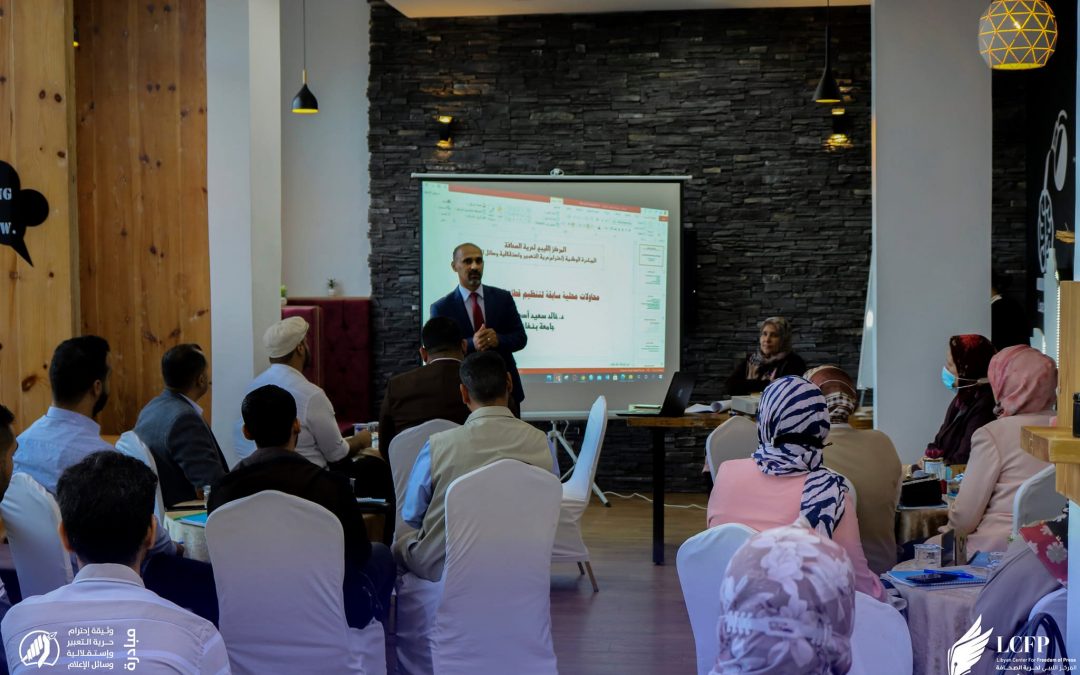
Nov 8, 2021
Benghazi October 30
A discussion session was held in Benghazi city about the National Initiative for the drafting of a “document respecting freedom of expression and the independence of media institutions”. A group of journalists and academics attended the discussion session to discuss their vision for the structural and legal reform of the Libyan media sector. The session was organized by the Libyan Center for Freedom of Press (LCFP) in partnership with lecturers from the Faculty of Media, University of Benghazi
The participants discussed the legal framework required to regulate the radio and television work in accordance with international standards. They tackled the right to freedom of expression and the importance of enhancing the protection of reputation and privacy. They also discussed the responsibilities of the Libyan legislator towards the media sector and the importance of enacting new laws by the upcoming legislative authority
The participants stressed the need for drafting a law establishing the High Constitutional Committee for media in accordance with Article 174 of the constitution, chapter Constitutional Bodies. Article 174 provides for the establishment of the High Media Council as an independent authority over which only the judiciary has authority. The Council’s mission is to regulate the media sector. The participants agreed on the responsibility of the legislator in regulating the Sector by approving the bills of law that are being worked on
It is important to require private media institutions to disclose their sources of funding. The owners of private media institutions should be asked to provide adequate salaries, social coverage, medical insurance and compensation in cases of accidents, diseases and disabilities in conflict areas
The participants stressed the need to distinguish between the right to freedom of expression and the use of hate speech in the media or social media platforms. Legal texts should deter the use of words that fuel incitement and violence. There is a need to develop clear definitions of types of cybercrimes, and to ensure that stakeholders do not exploit cybercrime law to abuse their powers and prosecute activists and journalists
The participants agreed that it is necessary to have an independent national union to play its role in defending the rights of journalists and to issue a “professional journalist card”
This eighth session comes within the National Initiative for the drafting of a document respecting freedom of expression and the independence of media institutions, to which signatures will be collected from candidates to the upcoming presidential and parliamentary elections. It will be a pledge to work with journalists and civil society when deliberating on new bills
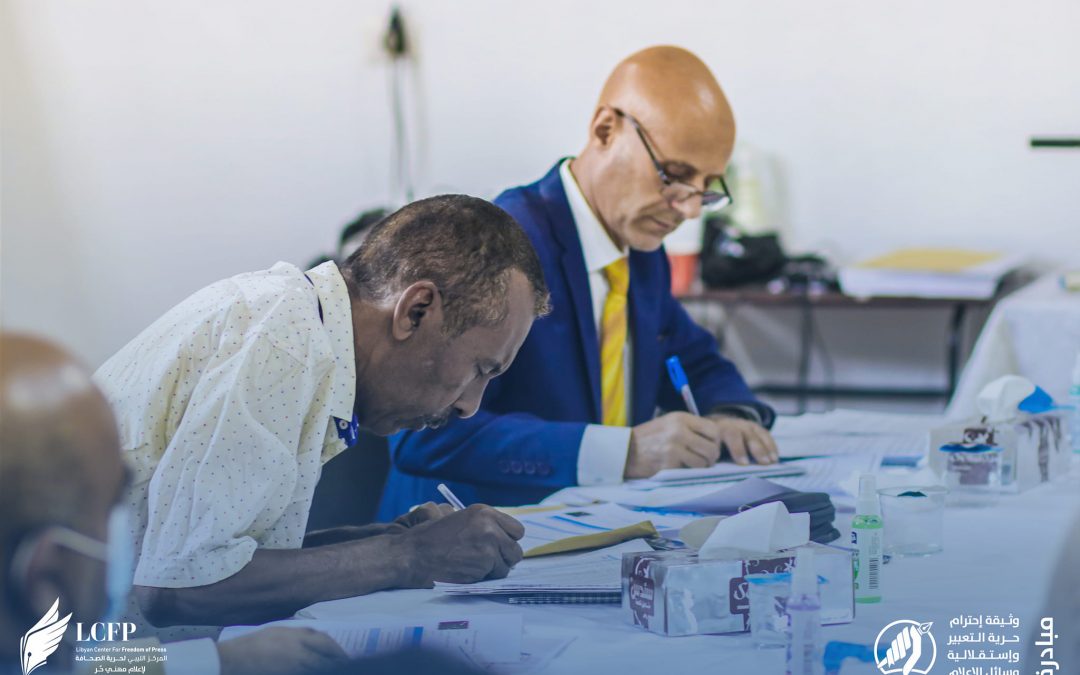
Oct 14, 2021
Sebha/October 11
A new discussion session was held in Sebha city within the National Initiative for the drafting of a “document respecting freedom of expression and the independence of media institutions”. Twenty-eight journalists, television correspondents, academics, lawyers, activists and media professionals took part in the Session. They discussed the need for media practices to be based on national legislations that promote independence and liberty
The participants agreed that it is necessary to draft a law to establish the High Media Council. It should be independent from the executive government. It should be responsible for managing and reorganizing the media sector and public media institutions. It should also reorganize radio and television broadcast, grant licenses to private media institutions and oblige them to disclose their funding sources, and make them respect the regulations and standards the National Media Foundation sets. The National Media Foundation is the highest independent authority. Its role is regulation. The members of its board of directors have the necessary expertise
The participants focused on the need to protect reputation and privacy. It is necessary according to them, to set executive regulations to ensure that media institutions are not involved in spreading rumors and biased news that harm the reputation of others. In addition, the general sanction procedures related to publishing issues should be reformed. The participants agreed that respect should prevail between political actors. Freedom of expression is a sacred right that is a part of the national constants. However, it should not threaten civil peace, public health or public order. Government officials will be bound to disclose information through the ratification of the law on access to information by the coming legislative authority
The participants also highlighted the need to monitor and oversee press and digital content. It is necessary to focus on combating disinformation, hate speech, rumors and spreading of destructive ideas on social media. Internet should be regulated in order to enhance its position as a free digital space
The participants find it imperative to develop educational curricula for Libyan media colleges, to develop media laboratories and to enhance their technical capacities. They also called on the candidates to the upcoming national elections to pledge to work with civil society and journalists on draft laws related to press and publishing. They also have to work on the law of the National Media Foundation, which is being prepared by experts in the field of media and law in the National Committee for reviewing media draft laws administered by the Libyan Organization for Independent Media
The participants emphasized the need for legal and institutional support that goes in line with the challenges facing the Libyan state. It is necessary to respect freedom of expression and independence of media, establishing a national project and unifying media discourse under the umbrella of professionalism, objectivity, quality and efficiency. It is also necessary to have legal texts that explicitly provide for the protection of media professionals
At the end, the participants stressed the need to respect the cultures and characteristics of the Libyan society components. They all have the right to broadcast in their own language and to convey their voice to the Libyans

